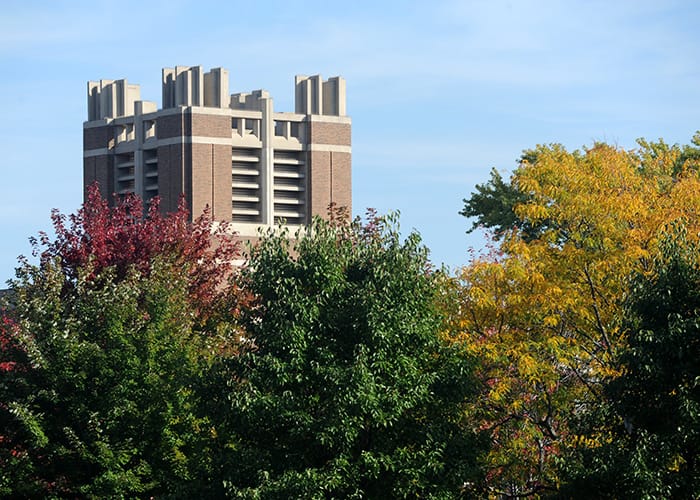There are many opportunities available to secure funding for equipment and instrumentation needs. Typically these opportunities fund equipment as related to research needs, but some may also fund equipment for academic purposes. Please consider the source and program information to help make this distinction.
While these opportunities provide the funding to purchase the equipment, you should also carefully consider the following:
Expand all | Collapse all
- Why is this piece of equipment needed?
- Why is this piece of equipment the best choice?
- How does this equipment fit into the long range plans of departments, colleges and/or the university?
- Does this equipment exist elsewhere on campus? If so, where?
- Is this a replacement item or something new to campus?
- Could this equipment complement other pieces of equipment on campus (e.g., to form a center)?
- Does this equipment exist elsewhere in southeastern Wisconsin (e.g., at the Medical College of Wisconsin or UW-Milwaukee)?
- What other MU faculty could potentially use this equipment (names and departments)?
- Are there faculty at other local institutions who could potentially utilize this equipment (names and departments)?
- What is the quoted price of the equipment?
- What additional accessories or special features does this include?
- Are there additional accessories that you may not need, but other users might?
- How will this equipment be purchased (e.g., grant, departments, college)?
- If cost share or matching funds are required, how will this be financed?
- Where would the equipment be located?
- What installation costs would be required?
- Is special ventilation needed?
- Does the area need to be kept at a certain temperature?
- What electrical requirements are necessary?
- What plumbing requirements are necessary?
- What is the minimum square footage necessary?
- Has MU’s department of Facilities Planning & Management be consulted?
- What percentage of time do you anticipate the instrument will be in use?
- Would the equipment be used for research, teaching or both?
- Would graduate or undergraduate students be utilizing the equipment?
Technical Support and Training
- Who will operate the instrument, train new users, ensure that the equipment is safely operated and appropriately maintained?
- If a technician is needed to oversee operation of the equipment, what is the plan for hiring and how would this position be supported?
- Is a qualified technician currently employed on campus who could oversee this piece of equipment?
- What type of training would need to be provided to users?
- What are the terms of the service contract?
- What are the terms of the warranty?
- How will the service contract and warranty be financed?
- Will user fees be charged? If so, what is the schedule?
- Of the campus and local faculty who might use the equipment, how many have grant or other funding available to them to pay for user fees?
- Which faculty member will ultimately be responsible for the equipment and oversee the technician, if one is needed?
- Who will determine the use schedule and which projects take priority?
- Who will be on the advisory committee?
University Infrastructure
- For any purchase that involves computers or related technology, has IT Services been involved?
- What plan is in place to ensure that human, animal or biosafety protocols have been approved prior to equipment use?
Equipment and Instrumentation Funding Opportunities
The Office of Research and Sponsored Programs subscribes to Pivot, by ProQuest. Pivot is a web-based discovery and workflow tool that combines a comprehensive source of global funding opportunities with the largest collection of scholar profiles into one intuitive solution.
With Pivot, faculty, research administrators, postdocs, and graduate students can easily explore new avenues for funding, view funding opportunities uniquely matched to their scholar profile, and collaborate with colleagues. For more information or assistance with building your profile or searches, please contact Averia Flasch at averia.flasch@marquette.edu.
Here's a list of Current Funding for Equipment and Instrumentation
This is a curated list of opportunities recommended to Marquette investigators. NOTE: Any opportunities marked 'Limited' require internal coordination with the Office of Research and Sponsored Programs as the number of applications allowed per institution is limited and must be determined prior to submission.
Beyond the typical funding opportunities listed above, there is also the Laboratory Equipment Donation Program (LEDP). The LEDP was established by the United States Department of Energy (DOE) to grant surplus and available used laboratory equipment to full-time faculty at universities and colleges in the United States for use in energy oriented Science, Technology, Engineering, and Mathematics (STEM) educational programs. This program is managed by the Office of Workforce Development for Teachers and Scientists (WDTS). The listing of equipment available through LEDP is updated as new equipment is identified. It is available at no cost for a limited time and is granted on a first-received qualified application basis.
Investigators should contact Erin Folstad if interested in applying.
For a more comprehensive list, below is an dynamic, curated search of Instrumentation and Facilities funding opportunities generated by the Pivot database. This information is continuously updated with new and changing information.
NOTE: Any opportunities marked 'Limited' require internal coordination with the Office of Research and Sponsored Programs as the number of applications allowed per institution is limited and must be determined prior to submission.
Again, investigators should contact Erin Folstad if interested in applying.
